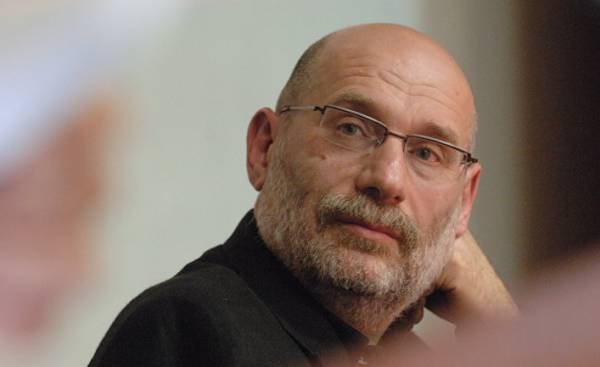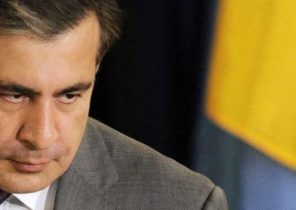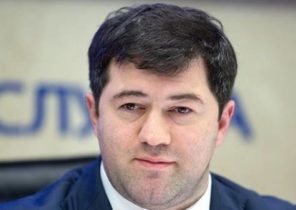
It is difficult to convey the scale of the impact that Boris Akunin is having on Russian society. Vladimir Putin, most likely, is afraid of him. In most countries, well-read and successful best-selling author, known for its mystical Thriller about Erast Fandorin, and would not be considered a threat to the establishment. But Russia is not most countries.
Russian national identity was formed by the history of the great literary masters. Stalin, who, among other things, was a poet, understood this better than most. He ruthlessly used the strategy of literary censorship and control over Russian literature and on people. Vladimir Putin is using the same strategy. The Kremlin has set in motion a storm of reality. Putin is trying to play Prospero, turning news into fiction, fiction into history. Akunin is in his way.
From the point of view of scale, think about Akunin, the Russian George.To. Rowling, from the point of view of style, perhaps somewhere between Dorothy Dunnett and Robert Ludlum. His detectives of the 19th century, originating in tsarist Russia, was published in 50 different languages, sold a modest 30 million copies.
Akunin he has written under at least four different aliases, including his own name. He is a translator, essayist, Professor, playwright, historian.
Grigol Chkhartishvili was born in the Georgian town of Zestafoni in 1956, mother Jewish, father is Georgian. In 1958 they moved to Moscow. And there he remained for a long time, continuing to prove that he is a versatile literary giant. Akunin for the first time publicly criticized the Kremlin during the Russian protests of 2011. Then his criticism was bolstered by the annexation of Crimea in 2014. Putin, apparently, a fan of Akunin’s works, was upset and tried to use Georgian origin Akunin against him. The irony is that Putin followed the script the most famous Georgians: Stalin.
Boris Akunin became the intellectual shepherd of the Russian opposition. Lately — perhaps most alarmingly for the Kremlin — Akunin began [to write] an impressive eight-volume history of the Russian state. Last year he released the third part. Akunin criticism in the address Russian leader is growing, and in light of the fact that Russian opposition figures are dropping like flies, there are serious concerns that he may not live to see the fourth volume.
In addition to permanent employment, opposition to the historical revisionism of the Kremlin, Akunin is also the author of the play “hamlet. Version,” the adaptation of the Shakespeare play, which will premiere off-Broadway this week. It was directed by Irina Gachechiladze; this is the first project Akunin in the United States.
According to its producers, “hamlet. A version of” shows “intrigue, opportunism and political plans of the burgeoning police state.”
Play Akunin “provides a radical point of view on a contemporary political issue: how to eradicate the old to make room for the new.”
The author to this day vague and elusive on the details, for example, location, for obvious reasons. It is in these conditions is quite intriguing for a novel Akunin: life imitating art, etc., The The Daily Beast recently able to interview author, historian, playwright.
When asked about writing the play, Akunin said he writes them to relax. He compares this process to “leave”.
“Writing plays is something remarkably irresponsible,” he says.
“Dialogue is the easiest part of the literary text. Any author of fiction will tell you that. And if something is not quite right, many other people like something, fix it: the Director, the actors. It is also good that the theatrical audience is your captive,” he says.
Perhaps it should be noted here that “the moon”, his chosen name, means “villain” in Japanese language and literature of Japan he has studied for many years. “They bought the tickets. They made the effort and came to the theater, so the show must be really, really awful to lose viewers. Book they simply close down, ungrateful bastards,” continued the playwright.
And later: “in short, I love to write for the stage.”
The obvious question: if Putin was a Shakespeare character, who would it be and why? Response Akunin was thoughtless and glib: “Iago. Without a doubt. This man is very good in the short-term planning, but has problems with the definition of further complications.”
In relation to their work and the fact that Akunin wants the American audience to understand about Russia and its people? “Only that Russia is an interesting country, quite different from the stereotypical clichés.”
Responding to a question about whether it is fair Akunin called a dissident, the author says: “Probably. But I is much less ardent than true political dissident. I’m not the heroic fighter mode. I just say what I think”.
According to the Executive producer of “hamlet. The version of” Mark Mullen, Akunin has never been more relevant, precisely because the Kremlin is using not only history, but culture as a tool of political manipulation.
“We, as a society, whether in the United States or Russia, have to look at history and art, to determine what is happening,” says Mullen.
Information comes to us so quickly, and in many respects this information is transformed into a weapon. Therefore, if perceptive, educated people do not determine and do not talk about these events, it will make someone else. And this other is unlikely to take care of our interests. Now is the time when we most need historians and artists who will take a tough stance and will present in the context of the events taking place around us”.
If the Kremlin still hurt Akunin to get to the eighth volume of his history, he does not understand that speaking against him playing Iago — ninth he writes that for him.






